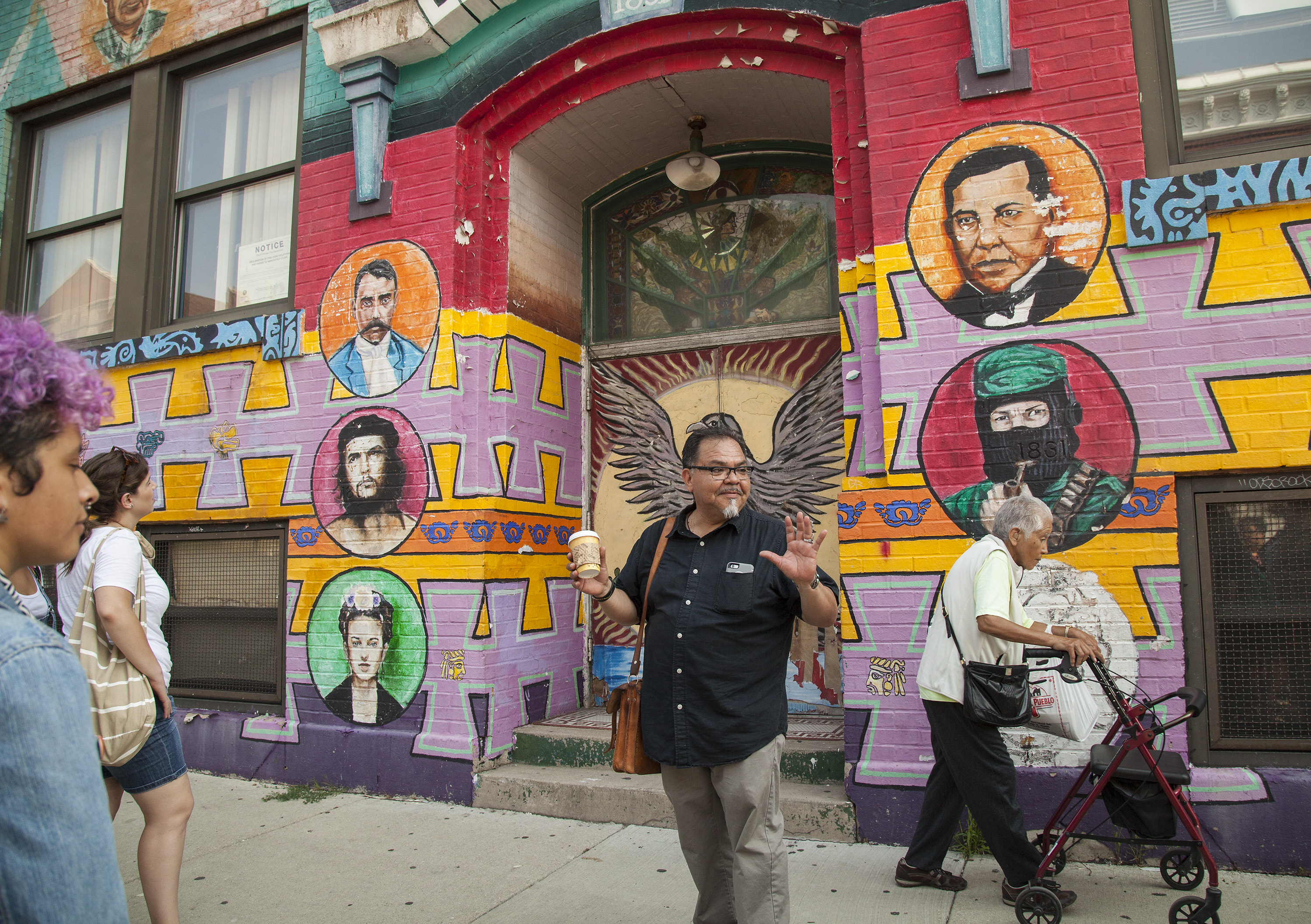 Juan Mora-Torres, associate professor of history, teaches a class in Chicago's Pilsen neighborhood. In a new summer institute, he and other DePaul faculty will connect new students with cultural resources in the city and university. (DePaul University/Maria Toscano)
Juan Mora-Torres, associate professor of history, teaches a class in Chicago's Pilsen neighborhood. In a new summer institute, he and other DePaul faculty will connect new students with cultural resources in the city and university. (DePaul University/Maria Toscano)
DePaul’s new
Social Transformation Research Collaborative, housed in the College of Liberal Arts and Social Sciences, will welcome freshly enrolled undergraduates to participate in a Summer Institute for New Students this July 25-29.
Twenty-six students selected for the program will experience a weeklong course focused on topics of racial and social justice. The course will be paired with immersion activities that introduce participants to DePaul’s cultural programs, including those within the Center for Black Diaspora and the Center for Latino Research.
“The students this summer will establish friendships, have access to mentors and learn about the resources that DePaul and Chicago can offer them,” says Juan Mora-Torres, associate professor of history and a faculty member for the institute. “I hope the network and teaching that begin at the Summer Institute will initiate their path to becoming informed students of DePaul and concerned citizens of the world.”
Students will explore the connection between historical influencers of color and the structures of anti-racism by analyzing art and humanistic expression from intellectuals, activists and community leaders. Additionally, the program’s content will focus on subjects surrounding multi-racial alliances, cultural erasure and housing disparities within Chicago.
“DePaul's Vincentian question—‘What must be done?’—will help students begin to explore solutions toward cultural resiliency, anti-racism, anti-violence and healing within the academy and communities of color,” says Monica Reyes, assistant professor of writing, rhetoric and discourse and faculty member for the institute.
Participants will experience Chicago as their classroom, as faculty combine seminars, lectures and analysis of primary documents with field trips around the city. The aim is for new students to encounter Chicago as a site of learning about the world. Trips to neighborhoods spanning Little Village and Pilsen to Chinatown are planned for the program.
“Visiting different neighborhoods will allow for in-depth, first-hand discussions of segregation, boundaries, gentrification, inequality and resistance head-on,” Mora-Torres adds.
The Social Transformation Research Collaborative aims to explore the history, legacies and current cultures of people of color through academic teachings. The program is led by Julie Moody-Freeman and Bill Johnson González, LAS faculty members. The leaders expect the Summer Institute to prepare the newest DePaul students for success and comfort in an open, diverse environment.
“We hope the program’s teachings will build awareness and lead students to use today’s social media technologies to raise awareness for past and present societal problems and inequalities,” González says.
STRC is launching its inaugural theme, “Influencers for Racial and Social Justice,” this summer.
Students were selected to participate in the institute through an application process, and the program is offered at no cost to students. Both the collaborative and institute were created thanks to a grant from the Mellon Foundation and are part of the Center for Black Diaspora and the Center for Latino Research.
“With this program, we are helping attract a diverse group of students to DePaul; we hope that the institute will create a welcoming environment that will aid them in finding a community to support their success,” Moody-Freeman says.